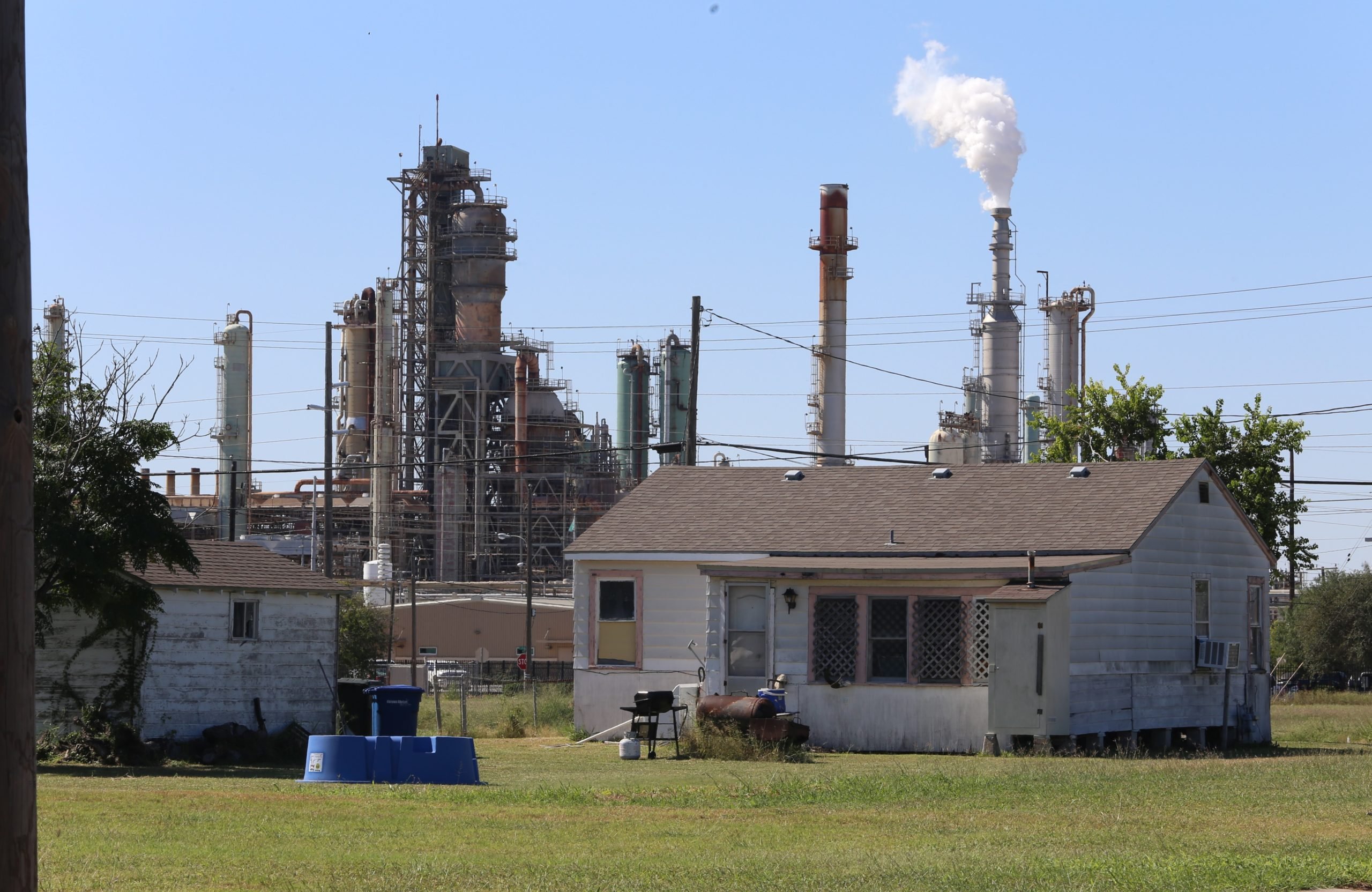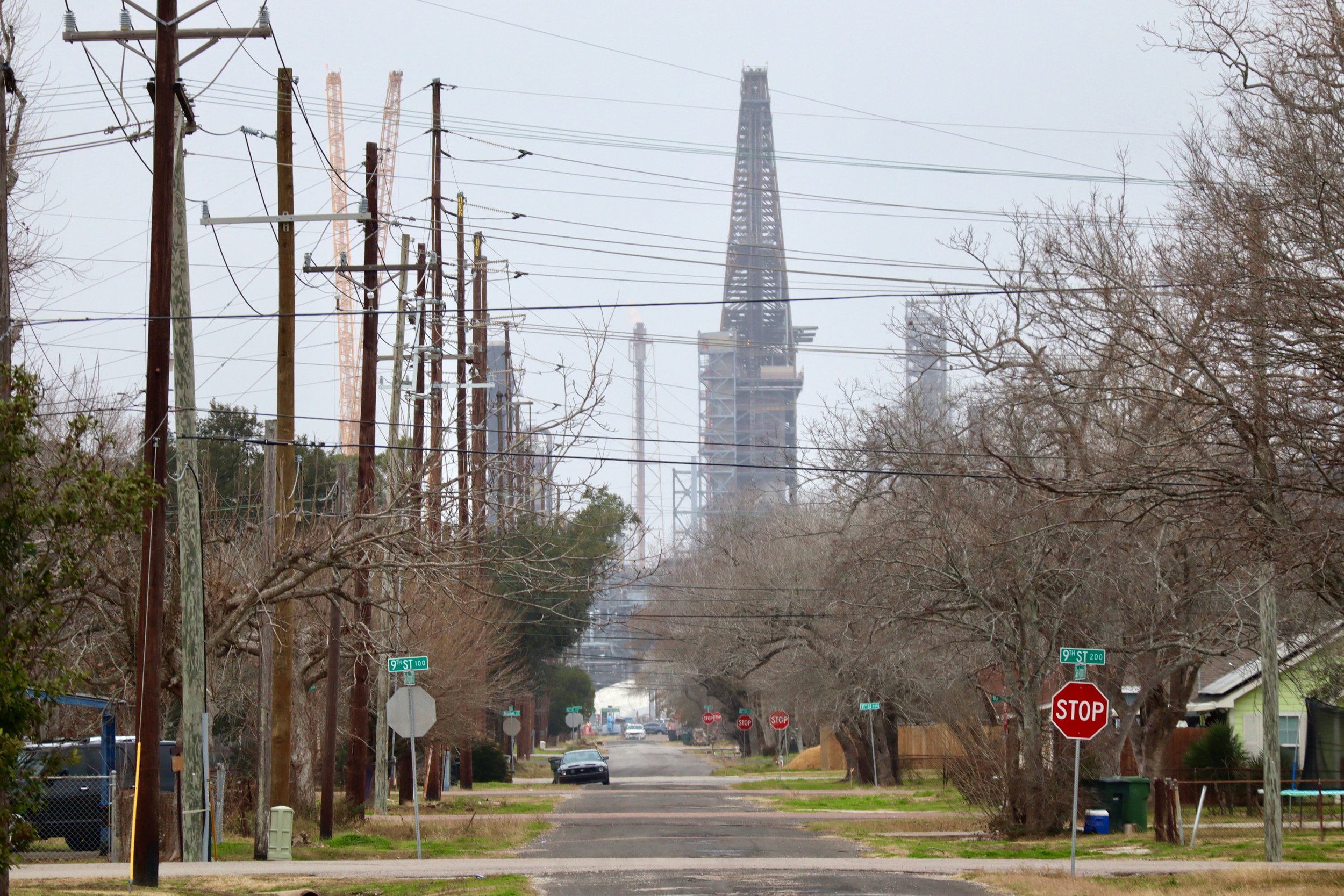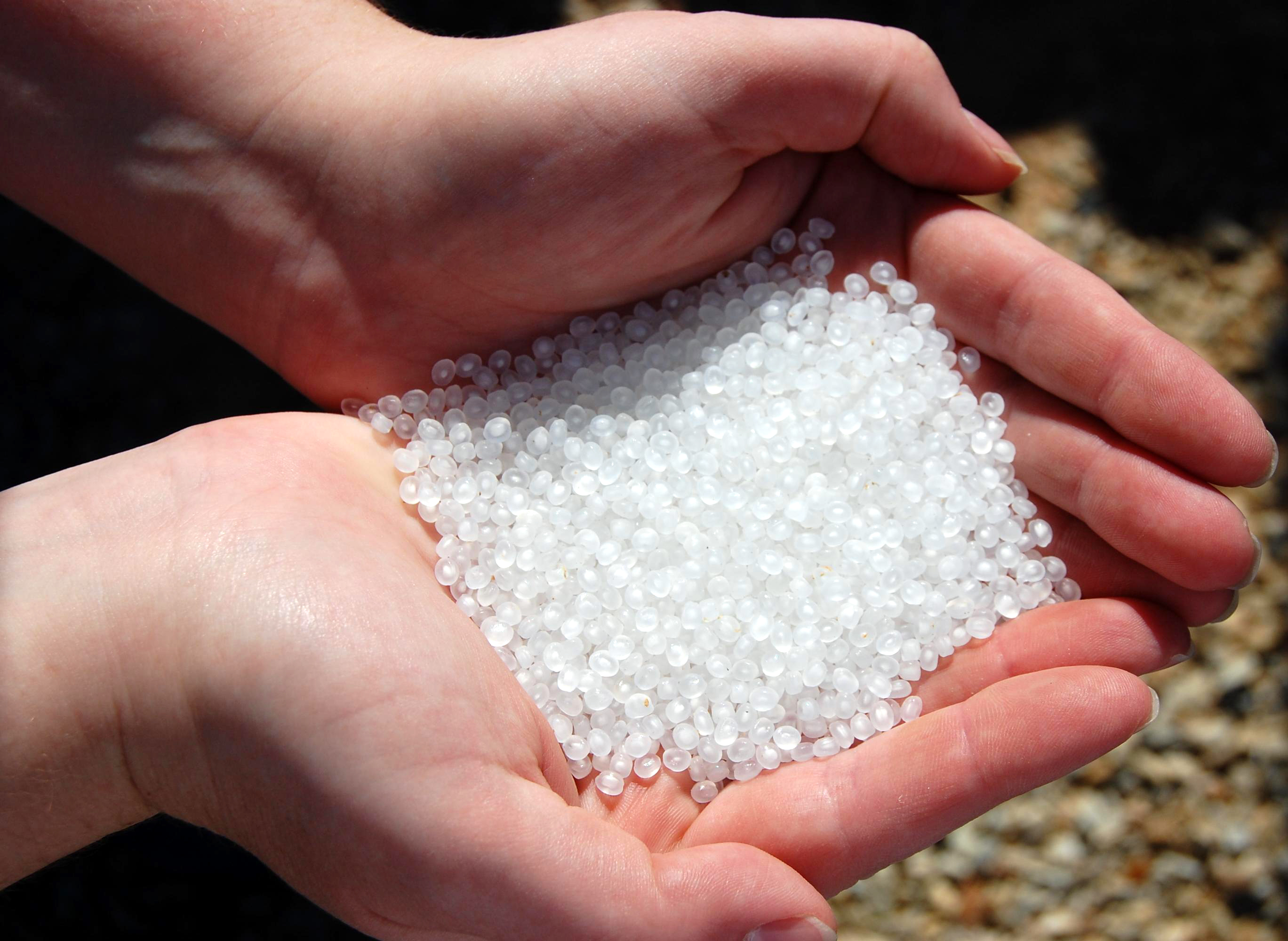
Millions of Plastic Pellets in Lavaca Bay? Formosa Says it’s Just ‘Trace Amounts’
After decades of polluting the air and water in Point Comfort, Formosa is now being confronted about its release of millions of plastic pellets.

Once a week, Diane Wilson launches her kayak on Cox Creek, a brackish stream near Point Comfort that feeds Cox and Lavaca bays, and paddles for four to five hours looking for white, grain-size plastic bits called nurdles. Used in industry as raw material for making any number of plastic products, when they’re loosed in the water, nurdles clump together, forming a hard scum like the ring around a bathtub. Wilson, 70, pays particular attention to the stormwater pipes from the nearby Formosa Plastics petrochemical plant, the source of this plastic scourge.
Though it’s an arduous trek by kayak, Wilson and seven other volunteers have been taking turns collecting samples of the pellets every day for the last three years. The evidence is a crucial part of a lawsuit that Wilson and the San Antonio Bay Estuarine Waterkeeper, an environmental nonprofit, have brought against Formosa.
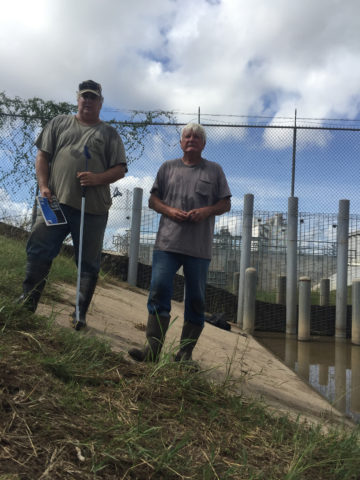
For the last three decades, Wilson has tried to call attention to Formosa’s lackadaisical approach to tackling pollution. In the early ’90s, when Formosa announced a major expansion and asked the EPA to allow it to dump chemical-laden effluent into the creeks and bays, Wilson demanded the company dramatically reduce its wastewater releases. In 1995, she tried to sink her 42-foot shrimp boat at one of Formosa’s outfall pipes in protest. Though the Coast Guard stopped her from scuttling her boat, Wilson got Formosa to agree to look into how it could eliminate its wastewater releases. But the company never followed through.
Between 1999 and 2009, the Texas Commission on Environmental Quality (TCEQ) fined the company more than $500,000 for a slew of air and water violations. Then, in 2009, the EPA stepped in and issued a $13 million fine. Under a legal agreement, about $10 million was to be used to install equipment to control air and water pollution, but four years later the EPA found the company had failed to fulfill its promises. Formosa was fined an additional $1.5 million.
Now, Wilson is taking on the persistent nurdles problem. Fishermen have found pellets in the bellies of fish, and the oddly named particles have also showed up 60 miles south of the plant in Corpus Christi. Jace Tunnell, a researcher with the University of Texas Marine Science Institute in Port Aransas, started the “Nurdle Patrol” last year to create awareness about the issue. Tunnell found that 24 of the 25 nurdles collected in Corpus Christi were similar in chemical composition to those in Lavaca Bay. Last month, TCEQ slapped a $120,000 fine on the company, this time for failing to control the release of plastic pellets. The agency took action only after Wilson and the Waterkeeper filed suit against Formosa.
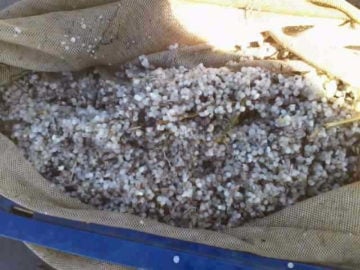
Formosa is now arguing Wilson’s lawsuit should be dismissed because TCEQ has already penalized the company for releasing pellets. It also says that TCEQ’s wastewater permit is “hopelessly ambiguous” since it prohibits pellets “in other than trace amounts,” which the agency hasn’t defined.
Erin Gaines, a Texas RioGrande Legal Aid attorney who represents Wilson and the Waterkeeper group, said the bays near Formosa’s plant contain “a massive amount” of pellets. “We just don’t think we’re even close to the [question of] where is the line, is it trace or not,” she said. A Formosa representative did not return a call for comment by press time.
Wilson argues that all the penalties, including the recent $120,000 fine, haven’t deterred Formosa. Her lawsuit demands that the company stop polluting and pay up to $173 million in fines for violations so far. The district judge in the case has set the trial date for March. “TCEQ fined them for six days [of violations],” Wilson said. “We have [evidence of] several thousand days they’ve been violating the law.”

